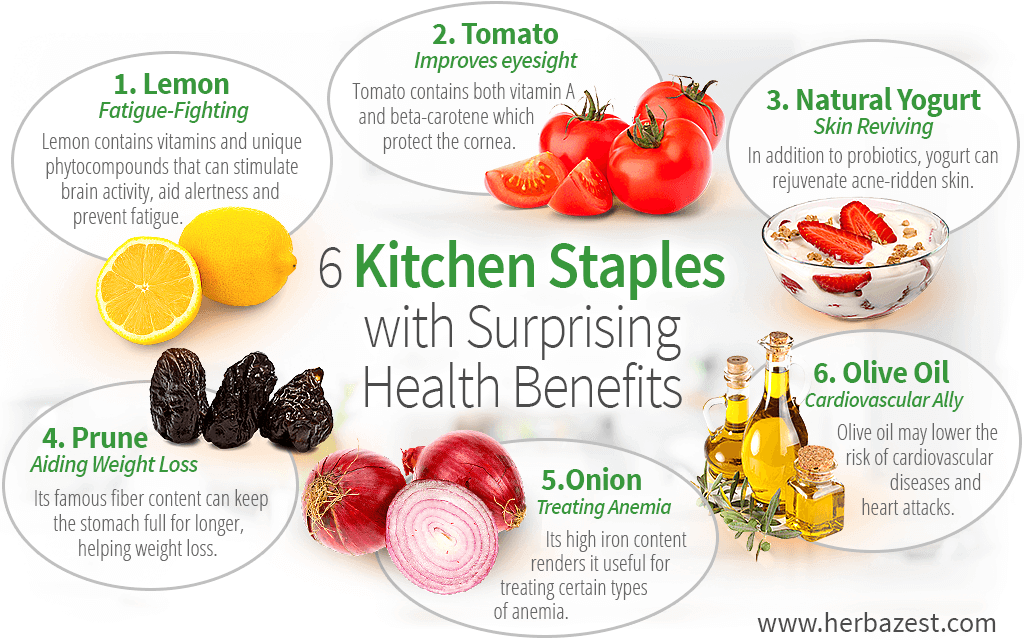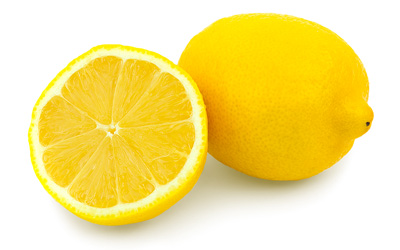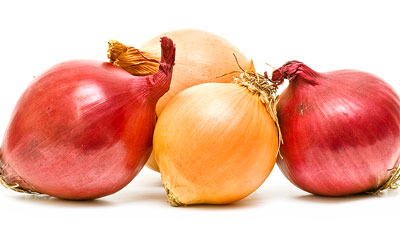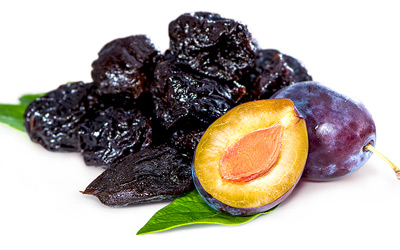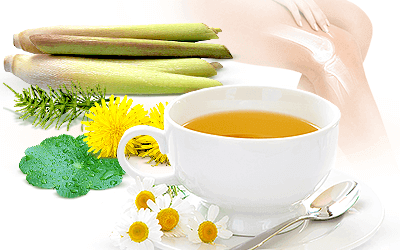The slightly bitter, mildly spicy taste of genuine extra virgin olive oil is due to its antioxidant content.
It is generally considered that if a food is "healthy," it is low in calories or low in fat. Of course, these are attractive features, but it is easy to overlook the fact that a healthy body is one that is functioning to its fullest capability, and the foods that best help achieve this are the ones that should be considered the healthiest. You may not be aware of little-known health boosts that foods you eat regularly provide. Keep reading to learn which kitchen staples offer unexpected health benefits that go beyond low calorie or fat quantities.
1. Lemon: Fatigue-Fighting
Lemon (Citrus limon) is renowned for its high Vitamin C content (superior than lime), which has been shown to kick-start the immune system. However, its fatigue-fighting properties remain less popular. The fruit's vitamins and unique phytocompounds can stimulate brain activity to aid concentration and alertness. For this purpose, it is commonly used in aromatherapy to counter fatigue. It has been argued that lemon has energy-boosting abilities that are more immediately effective than water. That is why lemon juice is popularly added to water for long-exertion activities, such as hiking.
2. Tomato: Improves Eyesight
Tomatoes (Solanum lycopersicum) contain copious amounts of vitamin A and its precursor, beta-carotene, which have been found to sharpen vision by protecting the cornea. It is often used in commercial brands of eye drops to treat various eye infections, including conjunctivitis, and aid peripheral vision.
3. Natural Yogurt: Skin-Reviving
It is no secret that natural yogurt contains probiotics (commonly known as the "good bacteria") that counter harmful microorganisms inside the body. However, the benefits probiotics offer outside of the body are not so widely publicized. When applied to the skin, yogurt's antimicrobial abilities have rejuvenating effects that are especially beneficial to acne-covered skin.
4. Prune: Weight Loss Aid
The most famous use of the fiber in prunes (Prunus domestica) is undoubtedly in relieving constipation, but these soluble fibers can aid in weight loss, too. The fiber in prunes delays the absorption of glucose into the bloodstream after eating and slows the rate at which food leaves the stomach, sustaining a sense of fullness. This helps prevent overeating, which, in turn, assists in maintaining a healthy weight.
5. Onion: Anemia Treatment
Among the numerous health properties of onion (Allium cepa), its antiseptic and immune-boosting properties are probably the most famous. On the other hand, one of its lesser known benefits is its effectiveness in treating anemia, thanks to its high iron content. Anemia is a red blood cell deficiency that can be treated naturally by eating onions and other iron-rich foods, like nuts and whole grains.
6. Olive Oil: Cardiovascular Ally
Olive (Olea europaea) oil is not only a delicious kitchen staple, but it is also rich in unsaturated fatty acids, like omega 3 and 6. These nutrients help moisturize the skin as well as help protect against cardiovascular disease. Olive oil consumption as the main dietary source of fat has been scientifically shown to lower the risk of cardiovascular disease and heart attacks.1
By being aware of these unexpected benefits, you can plan strategic ways to use them. To get the most out of these foods, you do not necessarily have to eat them. Instead, try applying yogurt on your face or using lemon juice in aromatherapy so that these kitchen staples can help promote the optimum functioning of your body and your overall well-being.
Sources
- Clinics in dermatology, Virgin olive oil as a fundamental nutritional component and skin protector, 2009
- Critical Reviews in Food Science and Nutrition, Chemical composition and potential health effects of prunes: a functional food?, 2001
- Journal of Clinical Biochemistry and Nutrition, Effects of Citric Acid and L-Carnitine on Physical Fatigue, 2007
- Journal of Cosmetic Science, Clinical efficacy of facial masks containing yoghurt and Opuntia humifusa Raf. (F-YOP), 2011
- National Library of Medicine, Iron in diet | Vitamin A
- University of California, Davis, Olive Center, Best Practices
- American Journal of Clinical Nutrition, Olive oil intake and mortality within the Spanish population (EPIC-Spain), 2012
Footnotes:
- American Heart Association. (2020). Olive oil may lower heart disease risk. Retrieved March 22, 2021 from https://www.heart.org/en/news/2020/03/05/olive-oil-may-lower-heart-disease-risk


